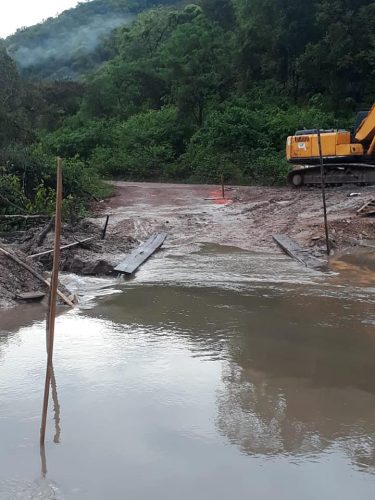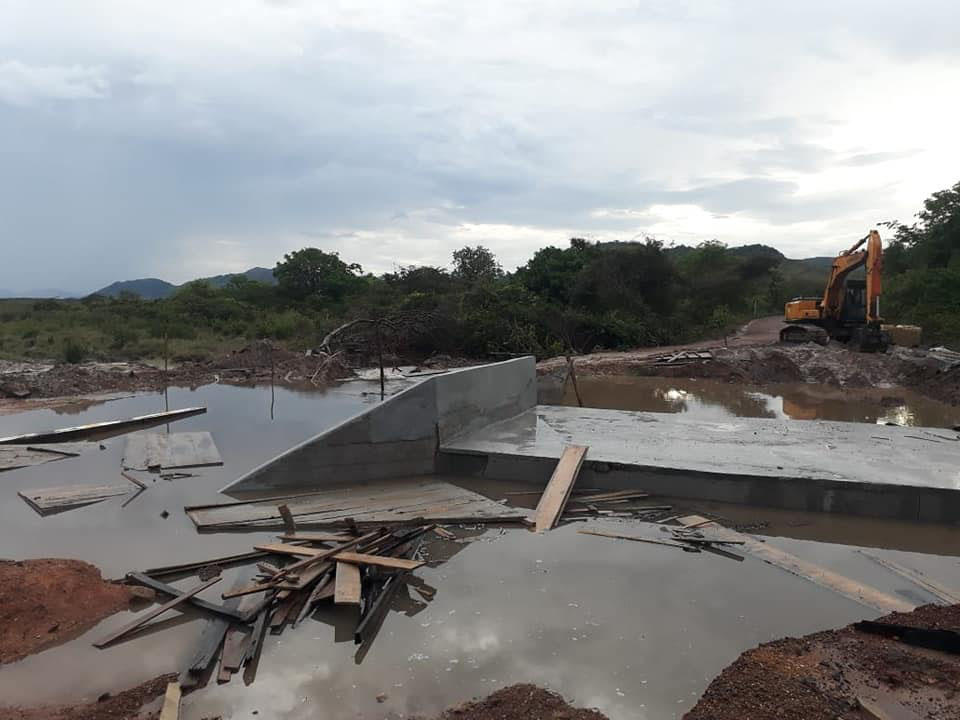With water levels rising in Region Nine from recent rainfall, the incomplete bridges at Manari and Yakarinta could pose a threat to essential supplies getting to Rupununi residents.
The Upper Takutu/Upper Essequibo region is transitioning from the dry period to the wet season which usually lasts until August.
The Manari and Yakarinta bridges have been undergoing works that were scheduled to be completed by April. This deadline was not met and with the wet season beginning, residents and members of the business community have expressed concern that a crisis is looming as the region is already suffering the effects of COVID-19.

Vice Chairman of the Region Karl Singh on Friday said that the bridges are being constructed on the main access road to Lethem, which is the business hub of the region.
“What we are seeing here is a possible disruption of services and transportation of goods to the region. We are possibly going to be cut off [from] fuel and food supplies because the water levels in the creek have risen and covered the by-passes that were created. This means buses and other transportation will not be able to travel across,” Singh stated.
He said that it is unclear why work at the Yakarinta Bridge, North Rupununi was stalled but he said that unconfirmed reports in the township said it was due to workers not being paid.
When contacted, Ministry of Public Infrastructure Chief Works Officer Geoffrey Vaughn said that he would have to make enquiries about the project before commenting. He was unsure if it is a project of his ministry or another agency.
President of the Rupununi Chamber of Commerce and Industry (RCCI) Daniel Gajie, said that the workers are still labouring on the bridges but the timeline for completion remains unknown.
He related that the Yakarinta Bridge is already cast and is in the process of being cured. It is expected that workers will commence backfilling soon. The president of the RCCI noted that the water level should drop within a matter of days should rainfall in the region ease.
At the Manari Bridge, workers are preparing to begin decking works as the foundation was recently completed.
Gajie does not believe a crisis is looming since the water levels for the main drainage channels in the region remain relatively low and the savannahs remain dry. He opined that within the next three weeks this situation can change as that is when it is likely to rain heavier. He however noted that they have reached out to the Region Nine Regional Democratic Council to enquire whether a temporary bypass will be created if the bridge is not completed.
Meanwhile, Melanie McTurk, who operates an eco-tourism resort also shared the view of Singh.
“These bridges link the main conduits in the region to Georgetown. If persons are unable to source supplies it will be a worse situation. This is why the deadline was set for Easter during the dry season but now it is going to be a significant hindrance to the region since they might not be able to have basic supplies like fuel, rice and sugar.”
She noted that the region is already suffering due to tourism operations being closed earlier this year.
“Region Nine has built its revenue base around eco-tourism over the past years. At this point a majority of the population is unemployed because these operations have closed due to COVID-19. In the past, the people would save up for this period because of the effects it can have but with operations closed earlier than usual they were not able to save up. They would use that little save up to ride the months of the wet season until operations restart… so with the cut off it can be worse for the region,” Mc Turk explained.
She pointed out too that there is a threat to food security as persons will not be able to engage in traditional means of gathering food for their families and with it being difficult to transport supplies by land families have to brace themselves for the worse.
Gajie, also raised concerns that during the oncoming wet season the roads might be eroded by logging trucks working at Iwokrama. He noted that the weight of the trucks transporting logs will contribute to the road deteriorating and suggested that the transportation of logs should be halted during the wet period.





